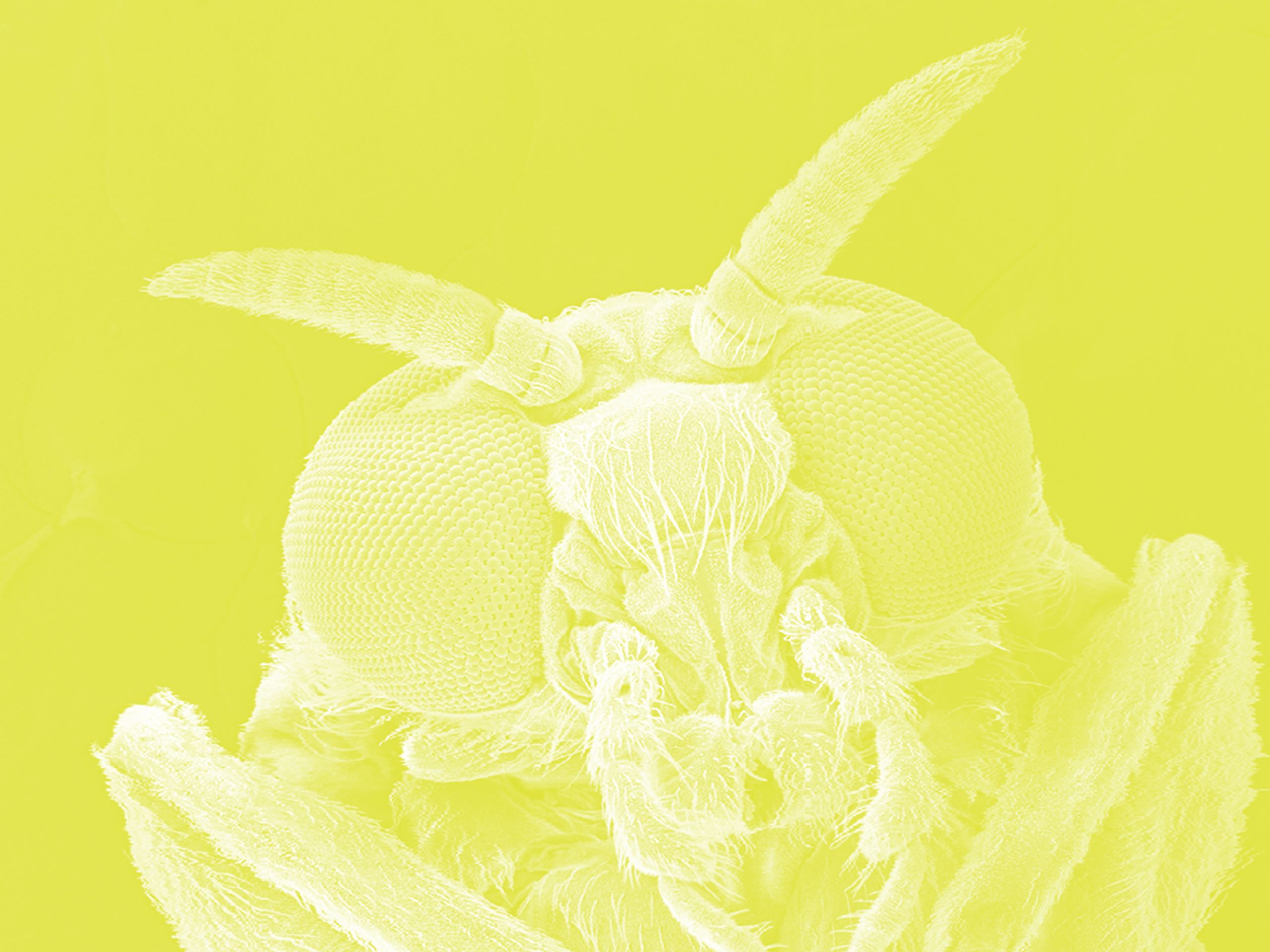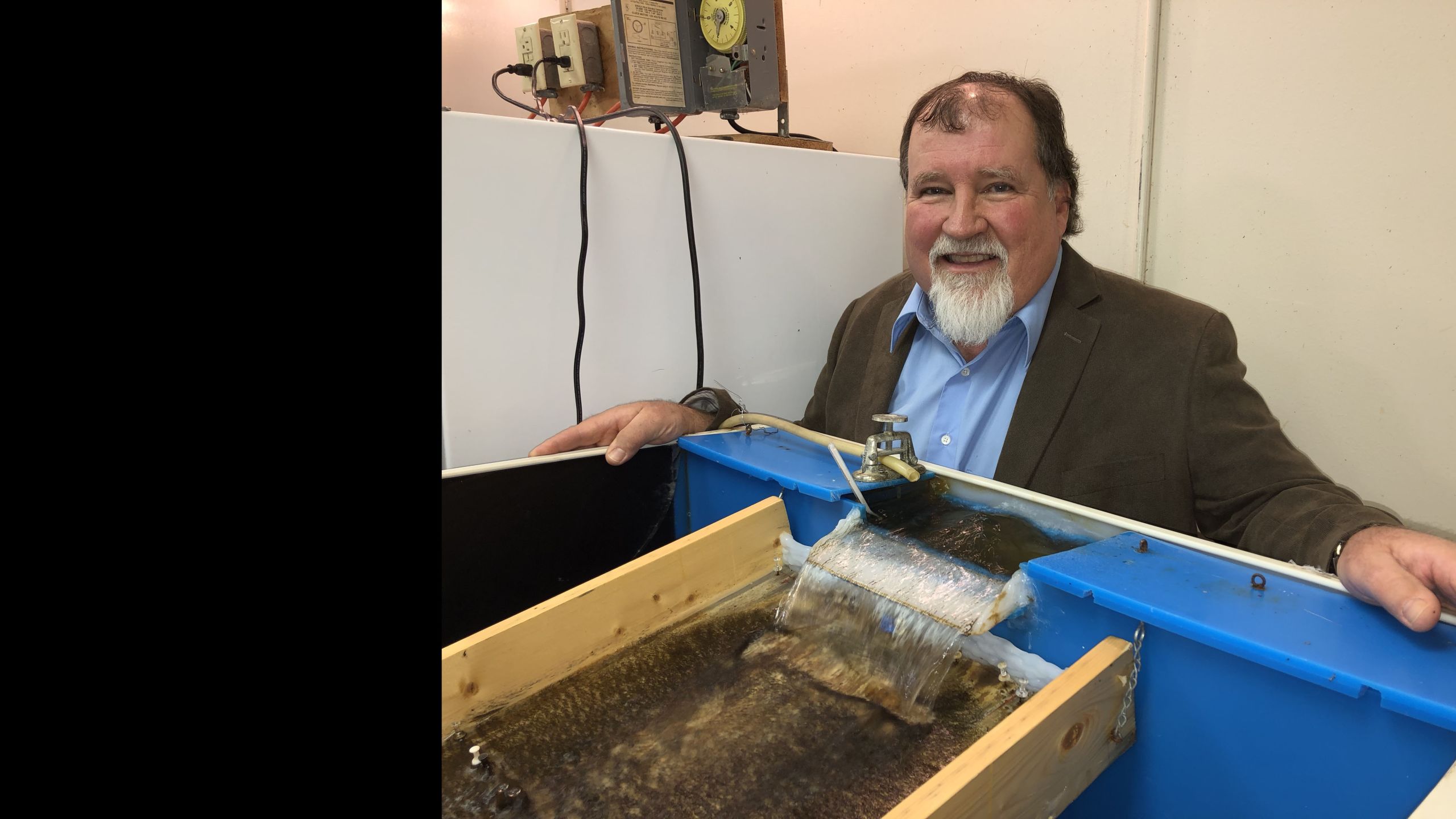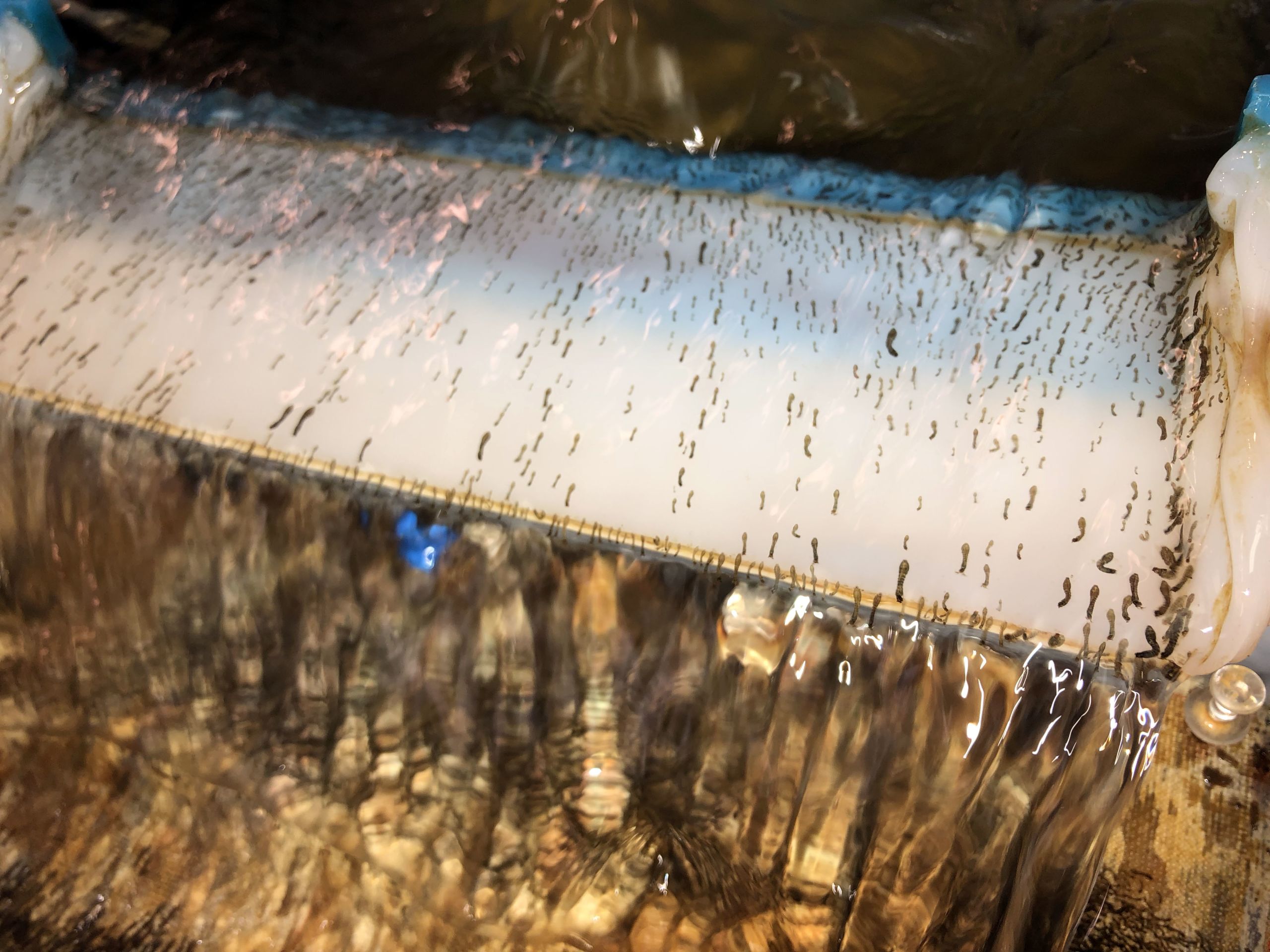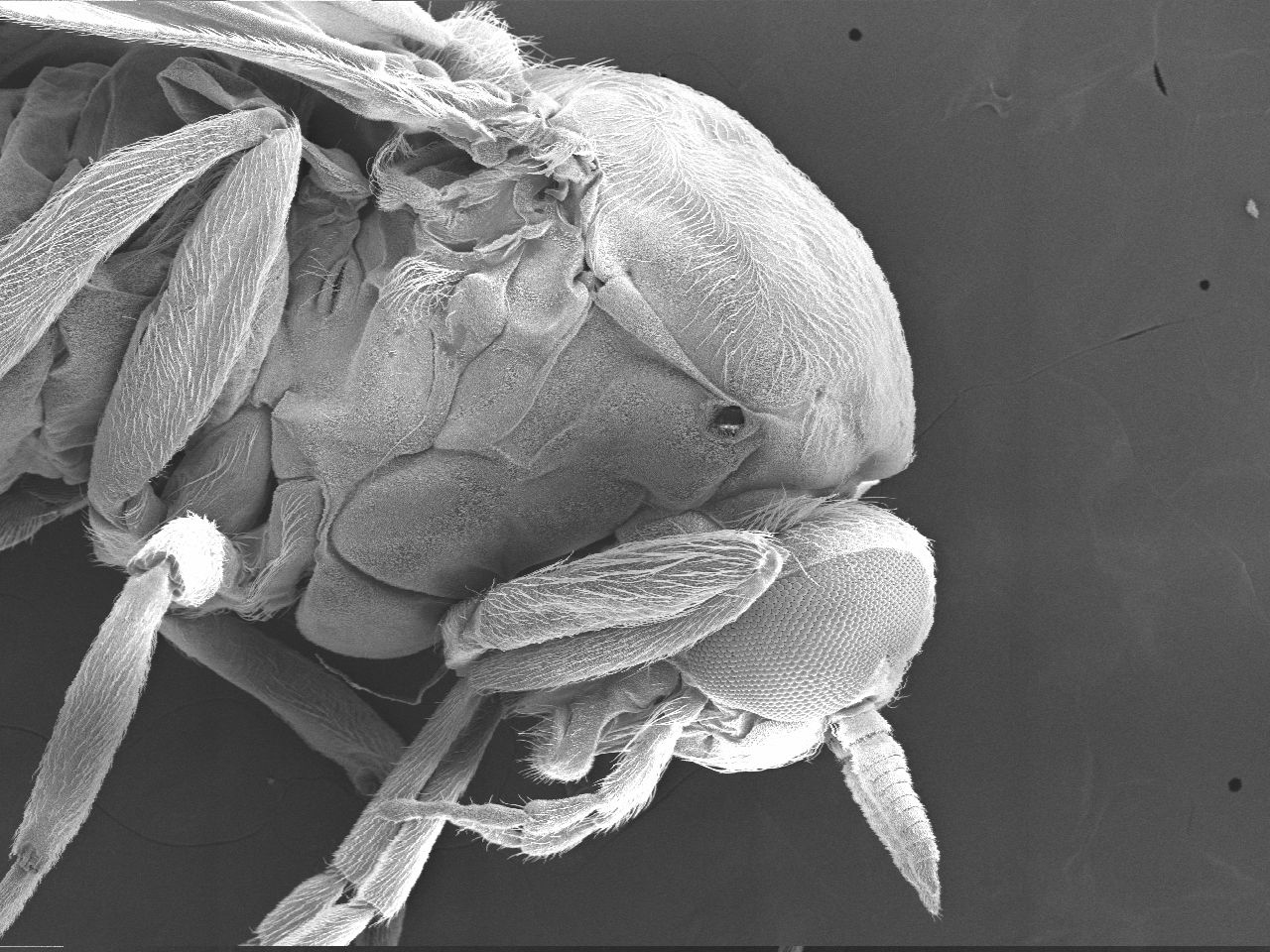Pretty Fly for a Science Guy
Elmer Gray's lab is unique in the study of black flies


It’s an unusual job but somebody’s got to do it, and those somebodies are UGA entomologists.
For the past 20 years, entomologists at the University of Georgia have operated the world’s only black fly colony. At any given time there are more than 2 million of the tiny insects at the colony’s lab on Riverbend Road in Athens, Georgia.
From wriggling larvae to adult breeding pairs, thousands of generations of the Simulium vittatum population have lived in the colony, providing entomologists around the world with a reliable and standardized test subject for a full range of research.
While it’s a little off the beaten path, the colony is a landmark in the entomology community and is the frequent destination for school field trips and research tours.
“We’ve kind of cornered the market on black flies,” said Elmer Gray, a UGA Cooperative Extension entomologist and director of the black fly colony.
As one might expect, it’s not easy keeping hundreds of thousands of black flies happy and healthy.
Not only do the insects need certain moisture and temperature levels, but they also require running water. Each rearing unit is built on top of a 170-gallon fountain that streams freshwater and nutrients over developing larvae. In nature, black fly larvae would attach to rocks and filter nutrients from flowing water. In the lab, they attach to sheets of nylon mesh and filter out particles of ground-up rabbit chow and soy meal.
It takes a lot of work to maintain a clean and healthy environment for the larvae and also to keep the rearing units and pump systems in good working order, Gray said.
Why flies?
Black flies are one of the world’s most noxious pests, spreading the parasite that causes river blindness across Africa and South America and generally causing misery in the Northern U.S. during the spring and summer.
“They’re the third most important arthropod (disease) vector worldwide after mosquitos and ticks, so they’re kind of a big deal around the world,” Gray said. “In Georgia, we’re lucky that they’re not a terrible nuisance pest. We don’t have many human-biting species … They’re not as bad of a problem as they are in the Northern part of the country.”
Despite the fact that they’re not a problem in Georgia, having the research colony at the University of Georgia has enabled the development of cutting-edge larvicides that curb the spread of disease and cut down on nuisance-fly populations in other regions.
“This work with the colony also helps the study of larval development, and we’re doing work now to see if warming water temperatures are going to affect growth rate,” Gray said. “We’re also doing a lot of work now with repellent testing. Repellents have long been an important tool to prevent black fly bites and reduce disease transmission, but we have developed a new technique and we hope that can be a more prevalent part of our work moving forward.”
Knowledge entomologists have gained from working with the population in the black fly colony has influenced research into many facets of black fly control.
Why Georgia?
Entomologists from other universities often ask Gray why UGA hosts a black fly colony when the flies aren’t an issue in Georgia.
It’s been a winding road but they ended up where they needed to be, Gray said.
The colony was founded in 1981 at Cornell University with eggs harvested from a riverbank in Cambridge, New York. In 1991, the colony moved to Clemson University, where Ray Noblet was conducting black fly research and was the primary investigator in the lab. Gray had become Noblet’s technician in 1985 and graduate student in 1987. In 1999 the lab, Gray and Noblet all moved to Athens where Noblet had become head of the College of Agricultural and Environmental Sciences Department of Entomology. Noblet’s dedication to biological control research helped the lab thrive in Athens.
It’s not easy to raise millions of flies. But it will all be worth it if UGA’s work with these little pests are able to make the world a better, less fly-infested place. •



